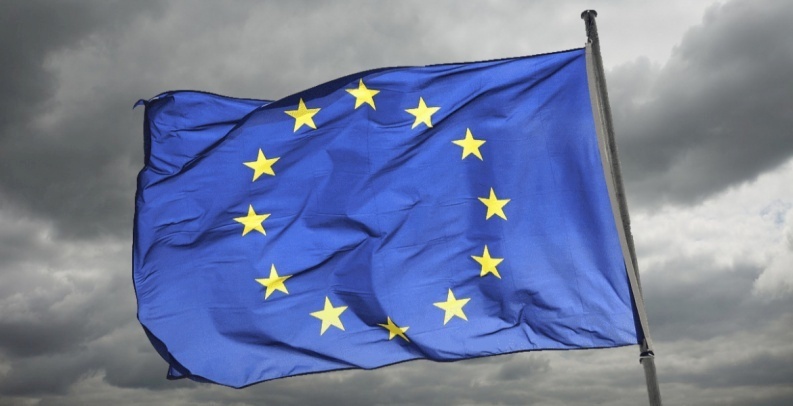
Europe Faces Economic Slowdown Under Pressure from Trump's Tariffs and Germany's Recession
SadaNews - EU officials are expected to lower growth forecasts for 2026 next week as part of an assessment of the damage to the region's economy, following a year since Donald Trump returned to the White House.
The forecasts, which will be announced in Brussels tomorrow, Monday, are likely to highlight the cumulative impact of trade threats and tariffs imposed by the United States, along with ongoing challenges from the weakness in Germany's economy and political disruptions in France.
Tariff War
The forecasts released in May were already bleak following Trump's announcement that confused markets regarding "Liberation Day" in April, which included tariffs on Eurozone countries before he suspended the measure in an effort to reach agreements. In the deal made by Brussels officials with the United States in July, they ended up accepting a 15% tariff on most European goods.
The EU and America Advance in a Trade Agreement Including Tariff Reductions
The implications for this year have been less severe than expected. The European Commission earlier predicted GDP growth in the Eurozone of 0.9%, and it is likely to raise that estimate this time.
Weaker Growth
Regarding 2026, hopes for a slight improvement to 1.4%, forecasted in May, now seem unlikely, as the European Central Bank projected only 1% growth in its updated forecasts in September.
Officials in Frankfurt described the challenges of the current quarter in their latest meeting: "High uncertainty, higher actual tariffs, the strength of the euro, and intensified global competition are expected to curb growth."
Germany’s Real Economic Growth is Elusive
The state of trade uncertainty is just one part of the dilemma. Despite a wave of spending on defense and infrastructure in Europe's largest economy, what would have been considered Germany's first real growth post-pandemic now seems less likely. The government’s Council of Economic Experts has lowered its growth forecast for 2026 to below 1%.
France’s Economy Hindered by Political Challenges
In France, the second-largest economy in Europe, political disruptions remain an ongoing challenge. Although growth there shows resilience, uncertainty deducts nearly 0.5 percentage points from it, with at least 0.2 points attributable to political upheaval and local budget issues, according to the Bank of France.
Italy... A Ray of Hope
France is likely to record the worst deficit in the region within the EU's public finance forecasts. Italy shines as a bright spot, having reduced its deficit to 3% of GDP, the union's maximum, at a faster pace than expected, and it may even receive a credit rating upgrade from Moody's on Friday.
Bloomberg Economics Experts' Opinion
"We expect Eurozone GDP growth to remain slow in the last quarter of this year at 0.1%. The economy may go through another period of weak business investment and weak external demand, due to high uncertainty and reduced purchases from across the Atlantic."
In other areas, among the key developments expected this week are the potential contraction of Japan's GDP, the slowdown of British inflation, the long-delayed U.S. job numbers, and the possibility of interest rate cuts in Egypt and South Africa.

The Trap of High Prices: Debts Haunt Germans and Bankruptcy Knocks at Their Doors

Major Changes in the Saudi Public Investment Fund… What is Happening?

Gold Stabilizes and Heads for its Seventh Consecutive Monthly Gain

The IMF Disburses Approximately $2.3 Billion to Egypt Following Two Reviews of the "Reform...

Oil Rises Amid Expectations for Nuclear Negotiations Between Washington and Tehran

Gold prices near $5187 per ounce as tensions escalate

How Will Oil Be Affected If Tensions Between Washington and Tehran Escalate?
